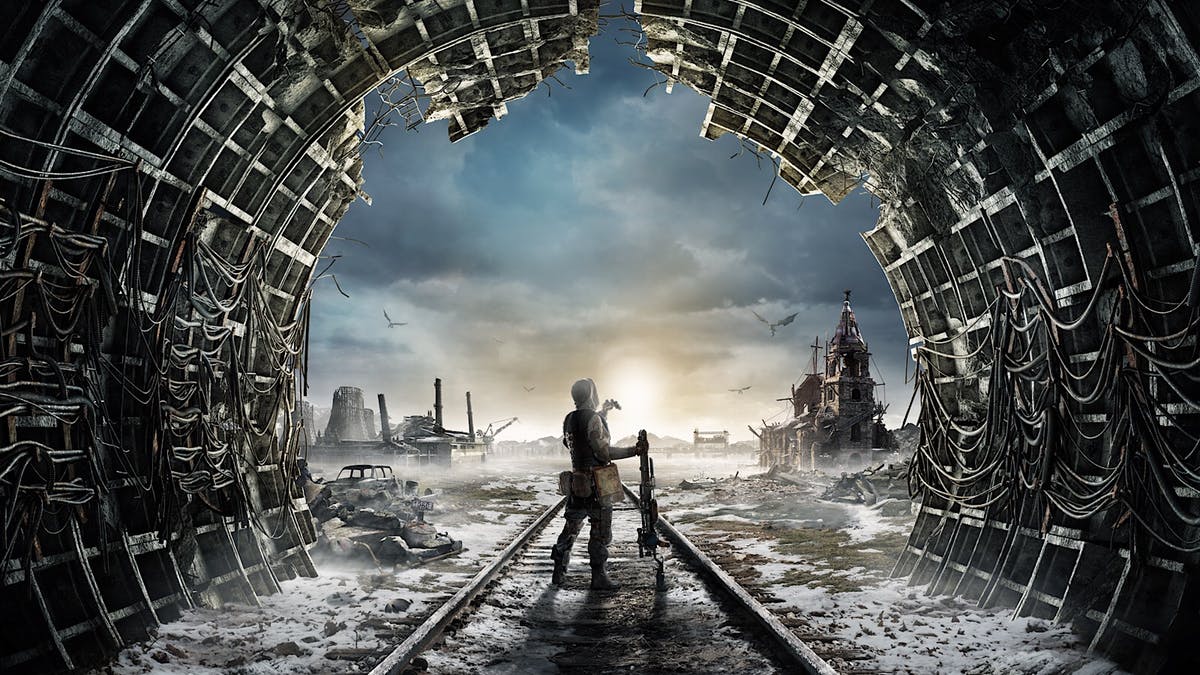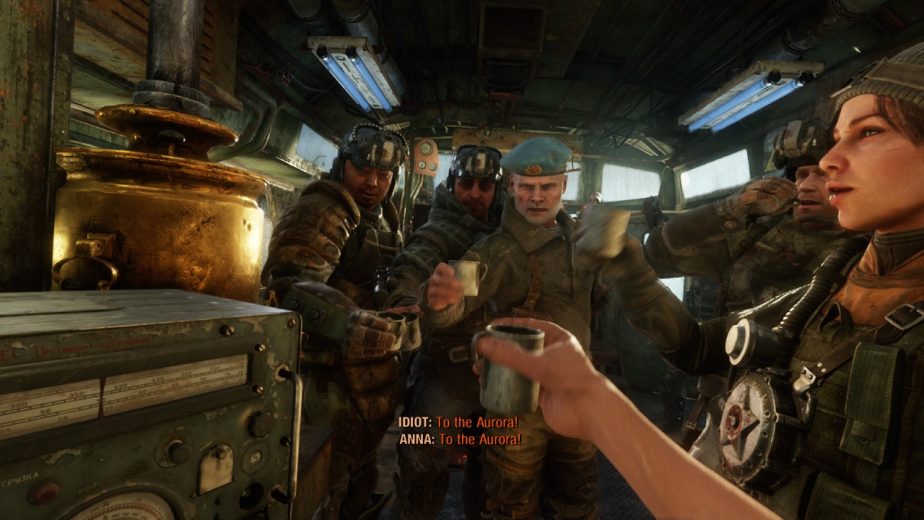Metro Exodus Karma Guide
Similar to the first two Metro games, Exodus has a hidden karma system. Unlike, say, Mass Effect and its transparent renegade/paragon system, it’s not always clear what constitutes a ‘bad’ action in this game. But it mostly boils down to common sense. If someone asks you to retrieve a precious family photo or a teddy bear, it’s probably gonna net you some good karma.
But you’ll get on the universe’s bad side by killing enemies who have surrendered. Kill enough of a bandit’s allies and they’ll drop their gun and put their hands up. You can still execute them, but unless you’re role-playing Artyom as a senseless butcher, you probably shouldn’t. It’s bad for your soul.
Conversely, talking to people with your weapon holstered will earn you good karma. To holster your weapon, hold down the H key. Some characters have lines of dialogue recorded especially for a player who approaches with their gun lowered. If something feels like it’s the right thing to do, it probably is. But your mileage here may very depending on your own moral compass.
If you accrue too much negative karma, you’re gonna get the bad ending. And while I think a ‘bad’ ending is as valid as any other in a game, it’s thoroughly depressing, and a deeply unsatisfying way to end the Metro trilogy. So make sure you behave yourself as you explore the wasteland, and go out of your way to help people, otherwise you’re gonna have a bad time.
Ultimately, Metro Exodus is kind of a role-playing game, so do whatever you like. If you want to be a total shithead, that’s up to you. But just know that you might spend the end credits staring listlessly into the middle distance, wondering why you did the things you did. And honestly, after all the shit he’s gone through in this series, poor old Artyom deserves better.
Keep your Karma Points in Check
Metro Exodus has an invisible Karma System that keeps track of your good and bad deeds. It means if an enemy surrenders and you kill him, the screen will become a bit dark and you will hear audio notifying that the game has taken notice of your action.
The same goes for the good deeds in the game and will impact *Metro Exodus Ending*.
Everything We Know About Metro Exodus Karma System
Though this may have slipped under many players’ radars, both Metro 2033 and Metro Last Light had a morality system that held players accountable for their choices they made in each game. It’s fair if you’re among those who didn’t notice, because there is no grand, ceremonious event that happens during these moments, no notification ping that lets you know you’ve made a good or evil choice. Instead, a quick (and subtle) flash of light hits the screen whenever you’ve made the choice.
In this way, Metro has always had one of the most interesting morality systems because it takes a stance on situations that other games would treat as morally complex. For example, in 2033 you come come across a Nosalis, a sort of mutant rat thing, in its nest, guarding what appears to be several valuable supplies you can use, like health kits and a new visor to protect you from the toxic air when you’re roaming radioactive Moscow.
Though the Nosalis is growling at you, it’s clearly not attacking you and poses no threat. Killing it will reveal that it wasn’t guarding the items you were seeking but instead its pack of Nosalis cubs. The system hits you with a negative karma point, affecting what ending you’ll get, though there’s nothing to let you know you’ve made a choice that’s affected your karma allignment, just a sinking feeling and whatever justification you form for killing the Nosalis.
For its part, it sounds like Exodus’ system will likely not deviate too far from this. “We didn’t want to make it like a game where you’re posed with a scenario that literally asks ‘do you want to be good or bad’?” executive producer Jon Bloch told us during our cover trip. “We want to see how people play, and then the game reacts to how you play.”
Like Last Light and 2033, Exodus will be keeping tabs on the choices you make but it also expands that notion, figuring in how you approach combat situations. Do you knock out enemies, bypass them, or straight up kill them? The game keeps count of all of this, with your relationship to factions later on down the road being affected by the actions you take when you first meet them.
During our gameplay demo, we watched as Artyom took on a cathedral filled with cultists and snuck out of the of the place, knocking guards out as he went instead of killing them. Later on in the same demo, Artyom rescued a group of cultists from bandits and they told him the location of a valuable weapon cache on the map as karmic repayment.
The team wouldn’t tell us if your kill/subdue count would factor into how the game ends, creative director Andriy Prokhorov left us with this cryptic statement: “You will get what you deserve.”


So in the situation of the man in the Volga asking me to shoot him literally in the face, I get a deep blue sort of flash but I don’t want to do that and have an issue on my hand. Is there any way to tell if it was bad? Would I not get a flash if it’s bad?
If the screen flashes blue with sound of water dripping in a tunnel, it’s good. If the screen goes dark it’s bad. Kinda bummed that killing enemies even when they engage you will cause negative karma points at times.
They should’ve had an actual meter instead of all this secret stealth karma crap. I’m glad I didn’t buy this game.